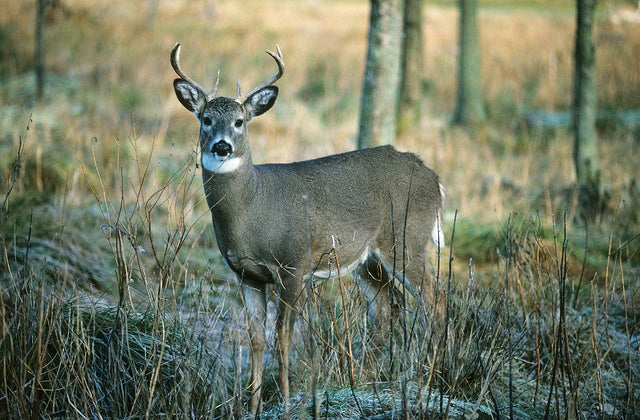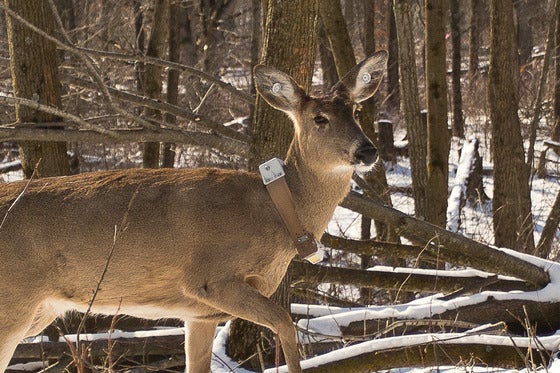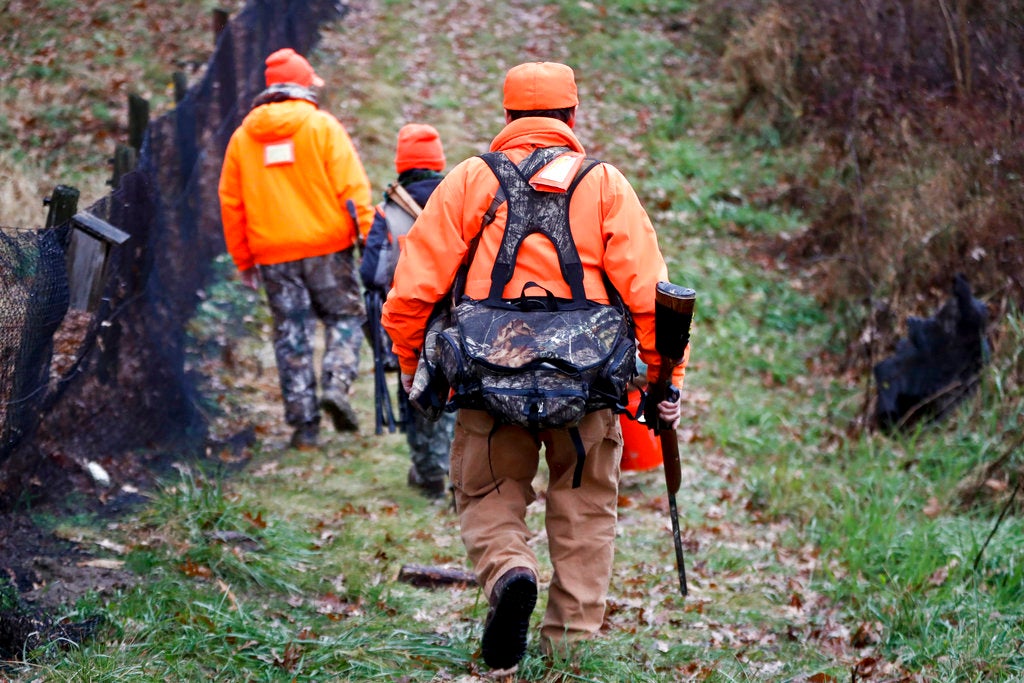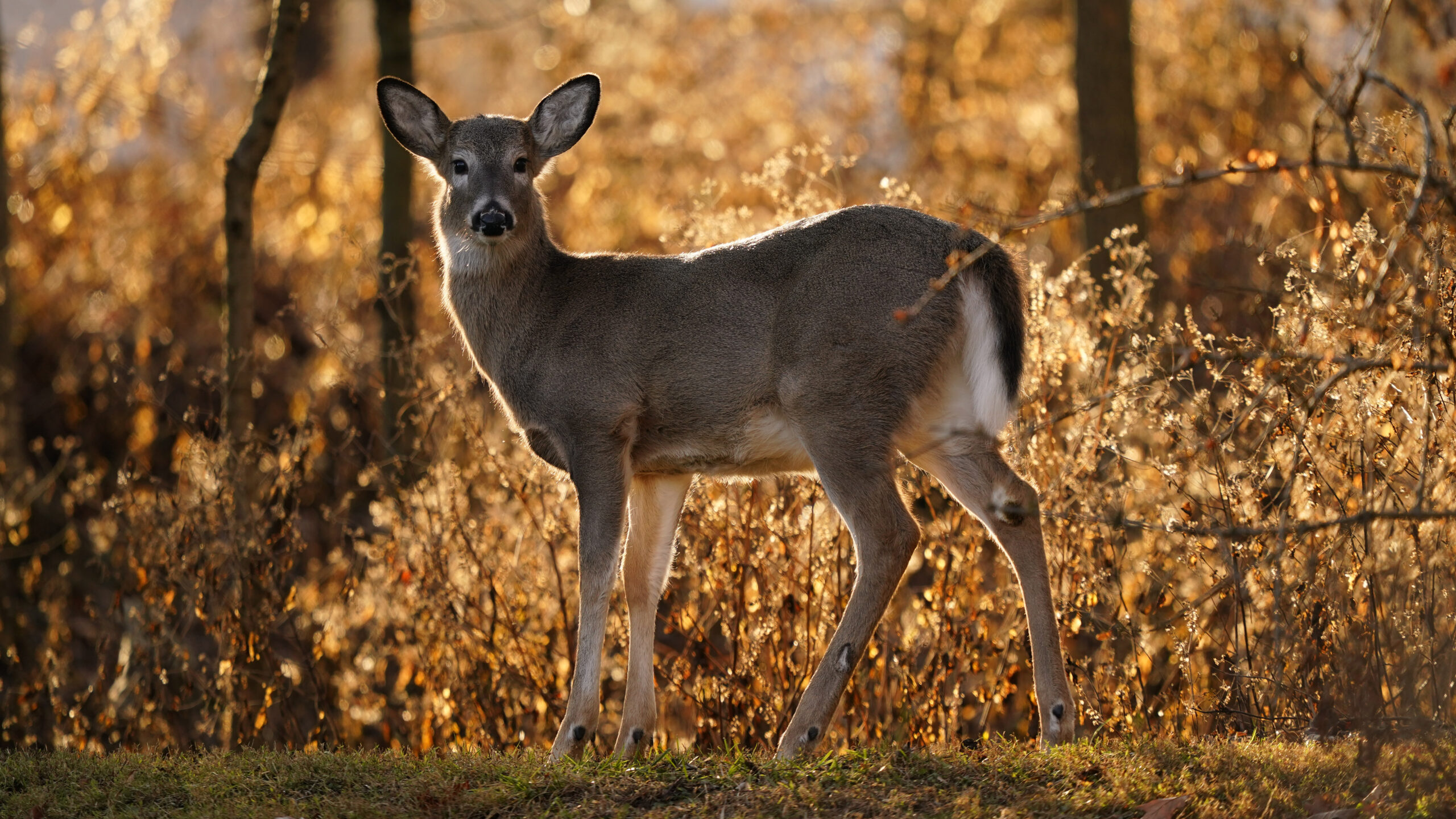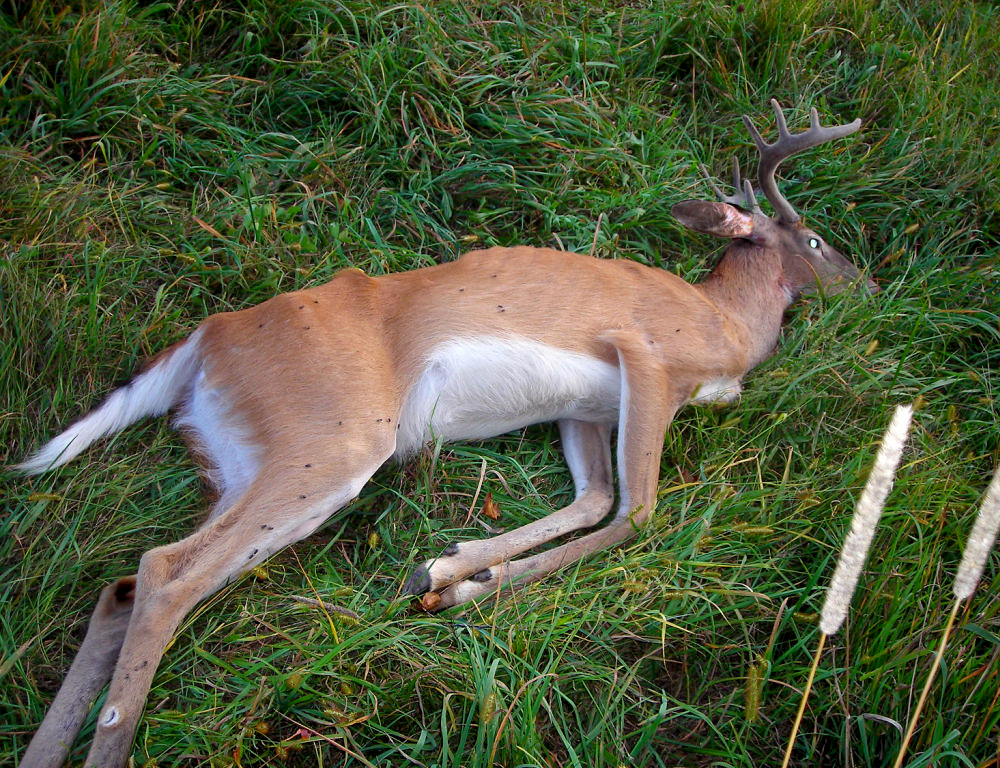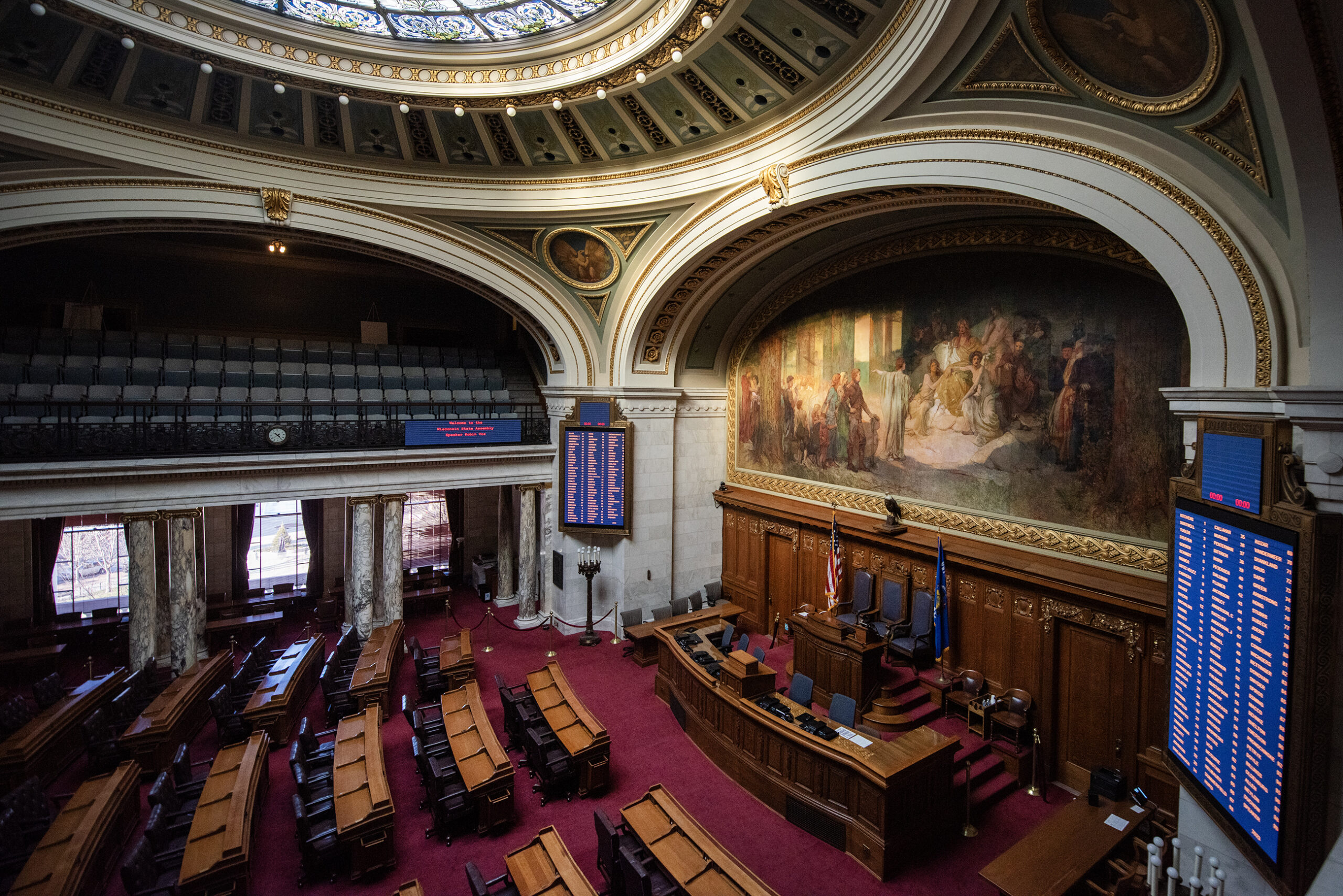Gov. Scott Walker says that he’s hopeful state lawmakers won’t block an emergency rule that he called for that aims to slow the spread of chronic wasting disease in Wisconsin’s deer herd.
At a press event in Green Bay on Monday, Walker reacted to an email sent to legislators by state Sen. Steven Nass, R-Whitewater, that signaled opposition to an emergency rule drafted by the state Department of Natural Resources. The rule proposes banning hunters from transporting deer carcasses from the state’s 55 CWD-affected counties effective Oct. 1 and requiring additional fencing at deer farms. The governor said he is willing to cooperate with lawmakers.
“If there’s additional feedback that lawmakers are having about things we can do to further improve that absolutely, we’re willing to work with them,” Walker said. “I just want to make sure it’s not a barrier to making progress on protecting us on chronic wasting disease.”
Stay informed on the latest news
Sign up for WPR’s email newsletter.
In his email to the Legislature, Nass was critical of the rule’s substance and its timing.
“This emergency rule contains substantial and burdensome changes to the way Wisconsin hunters will deal with deer carcasses with little advance notice or education,” Nass wrote.
In May, Walker directed the DNR to write rules on carcass transport and deer farm fencing, which the agency’s citizen-led Natural Resources Board approved in August. He also called on the state Department of Agriculture, Trade and Consumer Protection to draft rules on enhanced fencing requirements at deer farms and private hunting ranches. The DATCP Board though voted to take no action on the measure.
Whitetails of Wisconsin, the state’s deer farming industry group, has protested Walker’s rule as it would require the farms to install additional fencing. The group has said the proposed fencing requirements wouldn’t do anything to stop or slow CWD from spreading and the associated costs could drive members out of business.
Nass co-chairs what’s called the Joint Committee on Administrative Rules, which oversees the rulemaking of agencies like the DNR and DATCP. In his email to lawmakers, Nass said he intends to convene a meeting on the emergency measures.
“I will be requesting a public hearing and executive session of the committee to consider the possibility of suspending all or parts of the emergency rule after it takes effect on (Oct. 1),” Nass wrote.
When asked about what options he has if Nass blocks the CWD rule, the governor said there might be other avenues to enact the changes for hunters and captive deer farms, but he didn’t elaborate how.
“We obviously have some concerns about making sure affected areas, they’re not transporting, there might be some other ways that guarantee that that still makes it easier for hunters to transport their venison as they get it,” said Walker.
Staff at Nass’ office said that a public hearing on the matter has been scheduled for Oct. 1, which is the same day the DNR’s CWD rule was set to take effect.
Wisconsin Public Radio, © Copyright 2025, Board of Regents of the University of Wisconsin System and Wisconsin Educational Communications Board.
